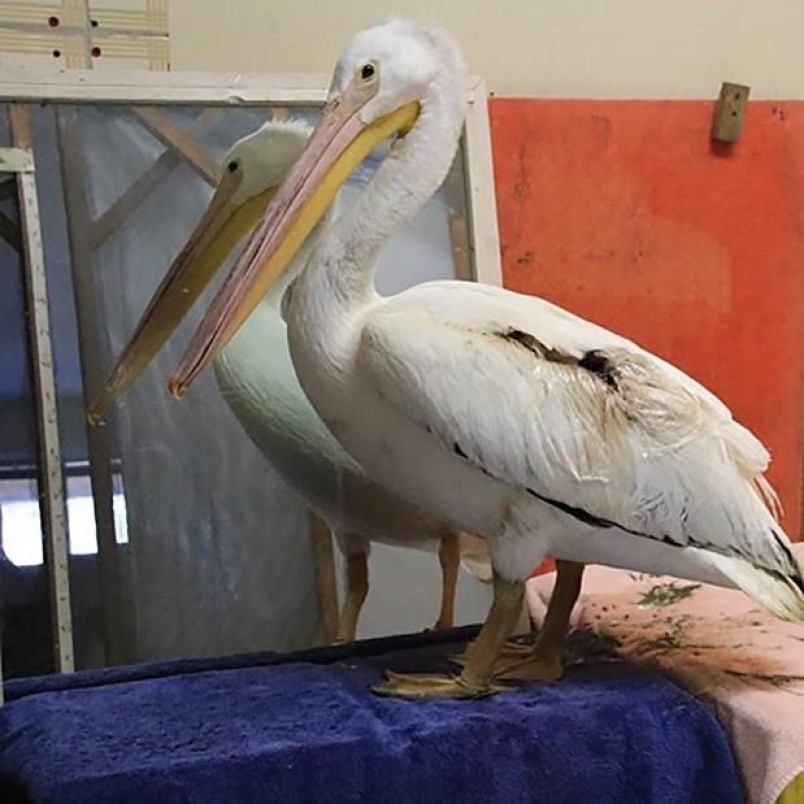An injured Endangered American White Pelican that was rehabilitated in Burnaby is set to be released back into the wild.
The pelican was separated from its migratory flock in October 2019 due to entanglement from a fishing line hook on Tuc-el-nuit Lake in Oliver, B.C. After notification by local residents, Burnaby’s Wildlife Rescue team rescued the pelican and it was treated and rehabilitated at the Wildlife Rescue hospital for the last seven months.
It was a coodinated effort between communities across the province that helped get the pelican - nickanmed "Mr. P" by Oliver's Carolyn Madge, who found the bird - safely to the rehabilition site.
The birds, which are a legally protected endangered species, travel through the Okanagan every spring on their way north to their only breeding ground in the province, located west of Williams Lake.
Biologists recently spotted the migratory flock return to one of their breeding grounds at Puntzi Lake, said a news release.

“These types of situations are challenging because of the specialized care and treatment facilities needed,” said Janelle Stephenson, Wildlife Rescue Hospital manager. “Pelicans are large-bodied birds with small legs and feet. They are designed to be floating on water not walking or sitting on hard surfaces. Our local climate was one of the largest challenges."
"We adapted by setting up an indoor heated pool to mimic his natural winter environment. He stayed in there as we spent countless hours managing his wound, infection, nutrition, and waterproofing of his feathers. He took months to recover from his initial injury. Once healed and as the weather warmed, he acclimated to our local climate where he learned how to fly again in a larger outdoor enclosure.” Severe damage to the left wing, including multiple punctures and a large tear in the skin above the elbow, indicated long-term treatment over winter for pelican to ensure a safe and successful return to the wild."
You can donate to the Wildlife Rescue Association online.
If members of the public see wildlife in distress, contact the Wildlife Help Centre at 604-526-7275.
With files from Castanet
Read more from the Burnaby NOW



